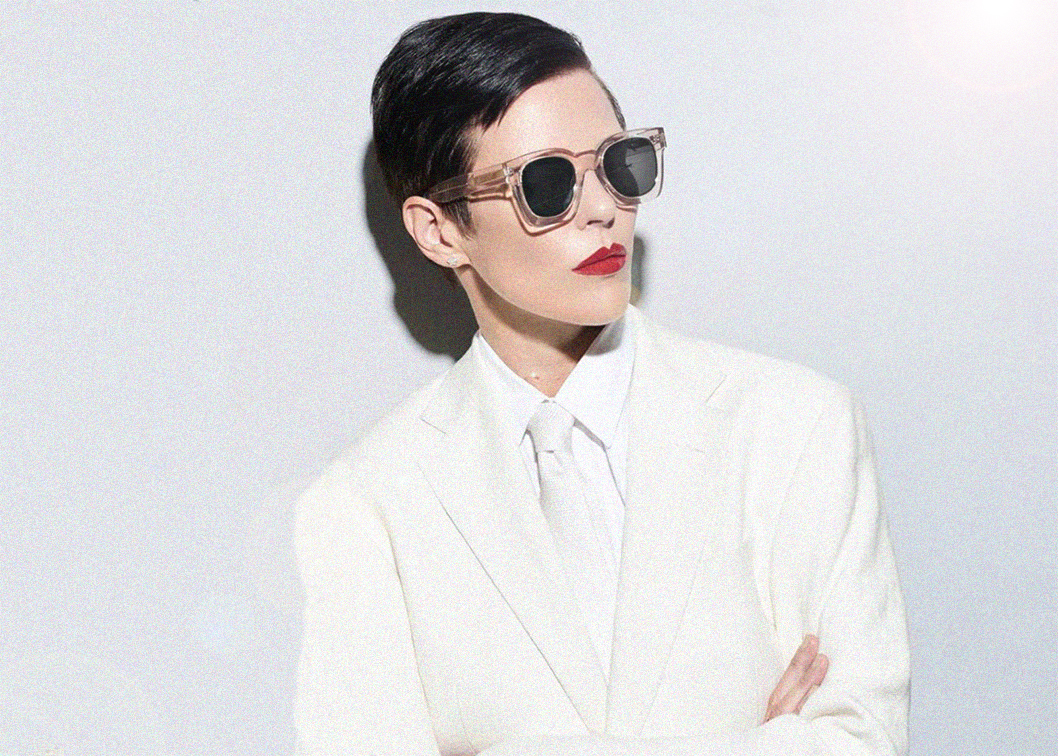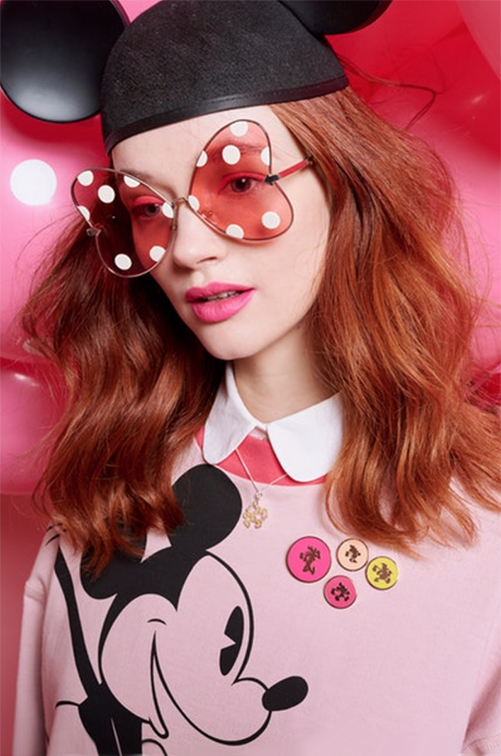Karen Walker
enterprising creator crush

LICENSING WITH PURPOSE
Karen Walker, the eponymous fashion label, began in 1989 with a NZ one-hundred-dollar investment and a couple of garments before Karen Walker the designer even made it to the end of fashion school.
Cut to 2020 and Karen Walker, the designer is ranked on The Business of Fashion’s definitive professional index of the people shaping the $2.4 trillion fashion industry the BoF 500 list, warranting her and her brand as a global player. The designer attributes this success to staying true to her unique point of view which she says, ‘has to be’ authentic and passionately adhered to’. “A lot of fashion brands are created in a boardroom” she said in an interview in the Australian’s Weekend magazine, “but the best are created out of heart and minds.”
A big part of the Karen Walker success story has been the eyewear division evolving out of a proposition to collaborate with an eyewear manufacturer from Australia that had a relatively ‘small’ ambition to get into the New Zealand market. Turns out Walker had something grander in mind.
“They rang and said they wanted to break into the New Zealand market,” she recalls. “We said, well, we’d actually like to break into the global market.”
That ‘we’ is Karen Walker and her husband, business partner and creative director of the Karen Walker brand Mikhail Gherman, and the kernel of that global goal had a 20-year genesis, planted as an idea after a visit to Paris when Walker saw a ‘multi-brand’ boutique t and realised it was somewhere her clothing line could be sold, “At a certain point we’d have to go outside of New Zealand. If you want to be niche, you have to be global” she told FQ.Co online magazine.
And when it came to the eyewear business, the designer says they were reacting to [what] was already out there which she says was, “a bit timid, small and generic. We went, ‘well, what’s the opposite?’ ‘Subverting the classics’, Gerhman describes it, and with hundreds of thousands of pairs sold and superstars like Beyoncé and Rihanna wearing their eyewear it was a stellar ambition.
Even though the Karen Walker company has been successful, the rapid changes in technology and ideas about and within the fashion industry see Walker and Gerhman constantly rethinking their approach.
Take New York Fashion Week for example. Around 2010 the duo started releasing the entire Karen Walker eyewear and shoe collections, along with select clothing pieces, into stores the very next day after their runway show, mainly to get ahead of bootleg copies of their fresh designs landing on faces, backs and feet before their real products reached stores.
“Fashion shows have the lifespan of an hour during the show and another hour when the pictures go on Instagram,” Mikhail explained in an interview with Emma Do, “people get excited about the show, so why make them wait?”
“You know within a day whether your consumer is relating to the product, it’s phenomenal,” says Walker, however both she and Gerhman caution that social media hasn’t changed their creative process. “Instagram’s not going to save you if your idea is shit,” said Walker in a Broadsheet interview.
Another way Gerhamn and Walker have ‘future-proofed’ the business is by diversifying out into different product categories through licensng.
“Eyewear, paint, beauty … everybody’s come to us, which has been really nice, but we’ve turned down a lot of opportunities also,” explains Walker. The collaborations they have pursued include umbrellas with Blunt, perfumes with Véronique Nyberg the creative director of Fine Fragrance at MANE, an interior paint range with Resene, limited edition notebooks with An Organised Life, Mini Mouse tees and accessories with the Disney company, two colabs on a peanut butter and dark chocolate ‘cookie kit’ with Jordan Rondel of The Caker and a sustainable denim fashion capsule collection the Melbourne sustainable fashion label Outland Denim.



At first blush some of these collaborations don’t read ‘fashion.’
Walker explained to Australian fashion reporter Glynis Traill-Nash that the cookie kit colab with Jordan Rondel, for example, included a fundraising element for child welfare which rang true for her, while the colab with Resene paints came about when she was approached by the paintmaker, twenty or so years ago, to create an exclusive range for them ‘that expressed the Karen Walker look.’
Walker crafted a colour palette for the Resene using the same process she draws on in her design practice which saw her collecting over a four-month period samples of colours in the form of fabric scraps, ripped out pages from magazines, objects, anything that caught her eye that was dusty or muted or had the antique and worn qualities she was looking for. She threw them all into a box and when she was ready laid them out and grouped them the same way develops a clothing range. Starting out as a 29-colour range, expanded to 42 and now sits at 49 Karen Walker-style ‘colour stories.’
This approach to working with other brands or licensing your brand name without diluting its intrinsic aesthetic or equity values is, as Vogue Australia (vogue codes) noted a long-term game that Walker and her business partner/husband Mikael “clearly played like champions, expanding the business thoughtfully and considerably, staying true to Karen’s taste [yet] also flexing within the changing retail environment.”
“We have a motto: Only work with people who get it,” says Gherman. “They’ve got to have the experience and the infrastructure and the distribution and everything else. But you’ve also got to like them. Our business is built around collaborations, long-term license partnerships. We’re not interested in being a manufacturing company. We like to work with experts.”
When we’ve gone into new categories, we’ve only gone into it when we felt the way we would do it isn’t being done and only if we’ve got something to say,” says Walker. “We’ve turned down loads of approaches because it hasn’t felt right. It hasn’t felt authentic to us. They just wanted our name.”
Gherman reiterates, “This isn’t your normal ‘Slap a logo on the side and see you at the board meeting. The reason these partnerships have become really successful and why they have grown is because we have a vision and we think about what’s missing. We ask ourselves constantly, if this [product] didn’t exist in the market tomorrow, what would people miss about it?”
When Karen Walker entered the eye wear market, their colourful, chunky styles with the trademark arrow, stood out from the competition. “Our strategy was” says Walker, ‘Let’s just make the design really good and not worry about the brand name.”
“We’re living in a world where niche is becoming more prominent than ever before and I think we caught that ride.” Added Gerhaman. Karen Walker sells its products across a wide spectrum of budgets, from a $10 key ring right through to a high end bespoke fine jewellery.
“We’re about, ‘Yeah, let’s do dog collars!’ And next week we we’ll do something else. We love ideas, the creative process and the excitement of seeing those creative ideas come to fruition. We love the creative process in terms of the business as well; how you build it, the strategy, the partnerships and how you grow and write the rules.”
Like the idea of diversification? Read more in the Harvest
image attributions. Top: Photo by Derek Henderson sourced from karenwalker.com. Middle: Karen Walker x The Caker sourced from newmarket.co.nz Karen Walker x Disney company sourced from karenwalker.com Karen Walker x Resene sourced from beautyeq.co.nz
